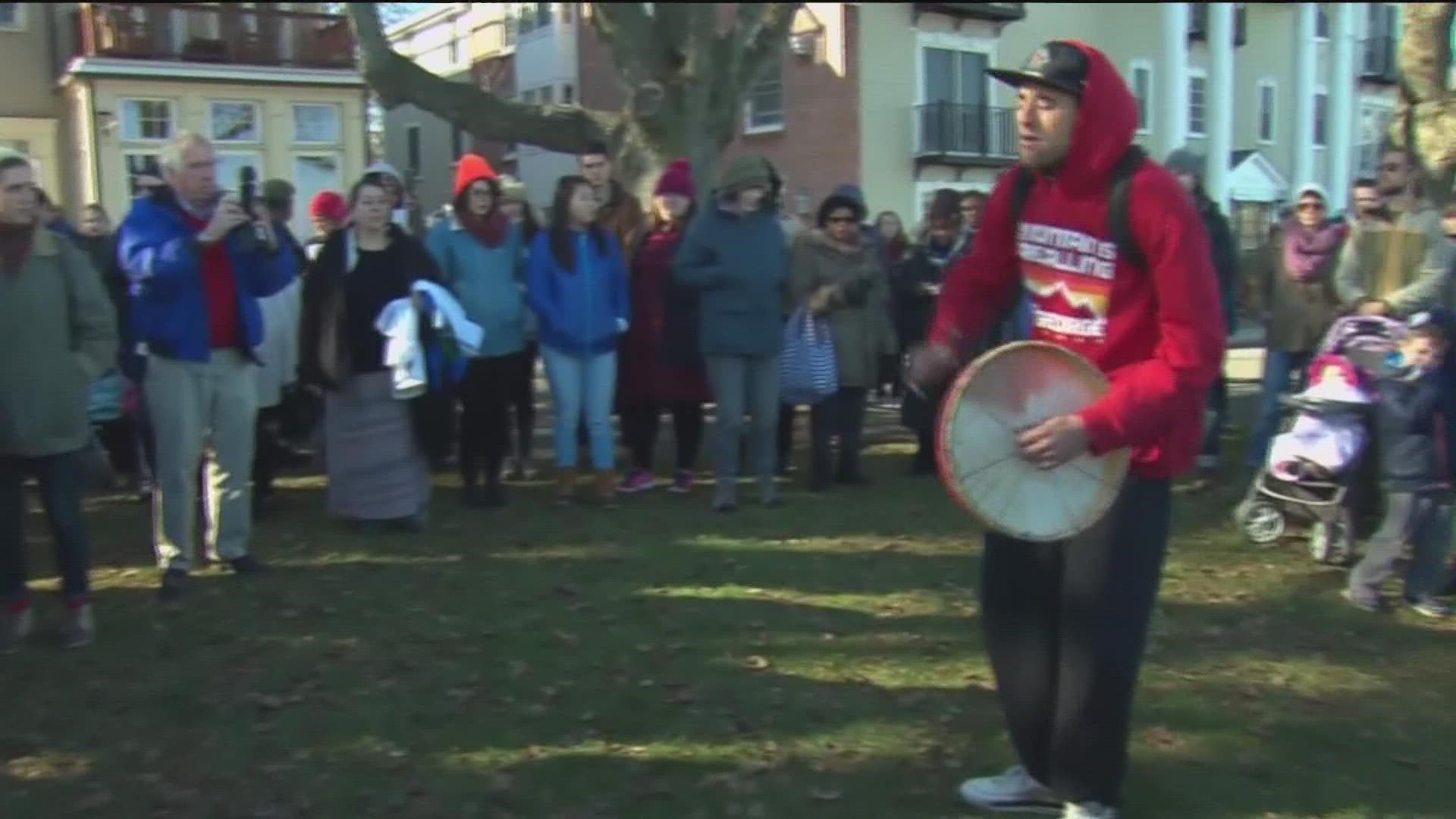SAN DIEGO — As many families gather around the table on Thursday, it's an important reminder to understand why Americans celebrate the Thanksgiving holiday.
For Native Americans, it has many different meanings.
The mainstream Thanksgiving tradition involves going to a family member's home and gathering around the table with a feast of turkey and all the fixings.
“I think historically, it's been taught that we're thankful that we won this war, or we won this battle or the world is in this state, the nation is in this state, we just need to be thankful for what we have,” said LaRayne Woster, Native American studies, Lakota language teacher at St. Joseph's Indian School in New South Dakota.
She says Thanksgiving can be laced with historical trauma among some Native Americans.
“Because a lot of Native American cultures call this day a Day of Mourning, our government and people who arrived here and attempted cultural genocide on the first nation's people that the morning is we lost a little bit,” said Woster.
When you Google, ‘What does Thanksgiving mean?’ Wikipedia says in part, ‘it began as a day of giving thanks for the blessing.’
Britannica says in part, ‘Americans generally believe that their Thanksgiving is modeled on a 1621 harvest feast shared by the pilgrims and Wampanoag people.’
“I like to explain to my kids, what Thanksgiving is not. I kind of start with the pictures that we all have in our minds of when we were in school 30 years ago. And the norm was to make the beads and the feathered headbands and recreate that picturesque scene where pilgrims and Indians are sitting at a table together sharing the meal,” said Woster.
She then starts a discussion to empower students to think critically and get both sides of the story.
“Show them some of those pictures. What do you think they were thinking? Or do you have any questions? Or knowing what you know about our history? Now? Does this seem real?” said Woster.
Instead of mourning Thanksgiving, Woster calls it Family Day to commemorate their rich heritage.
“I always tried to turn that around and say, but look what we have, we still have our language, we still have our ceremonies and our ancestors,” said Woster.
Many teachers across America are changing their Thanksgiving lesson plans or doing away with them. She encourages educators to honor indigenous history.

